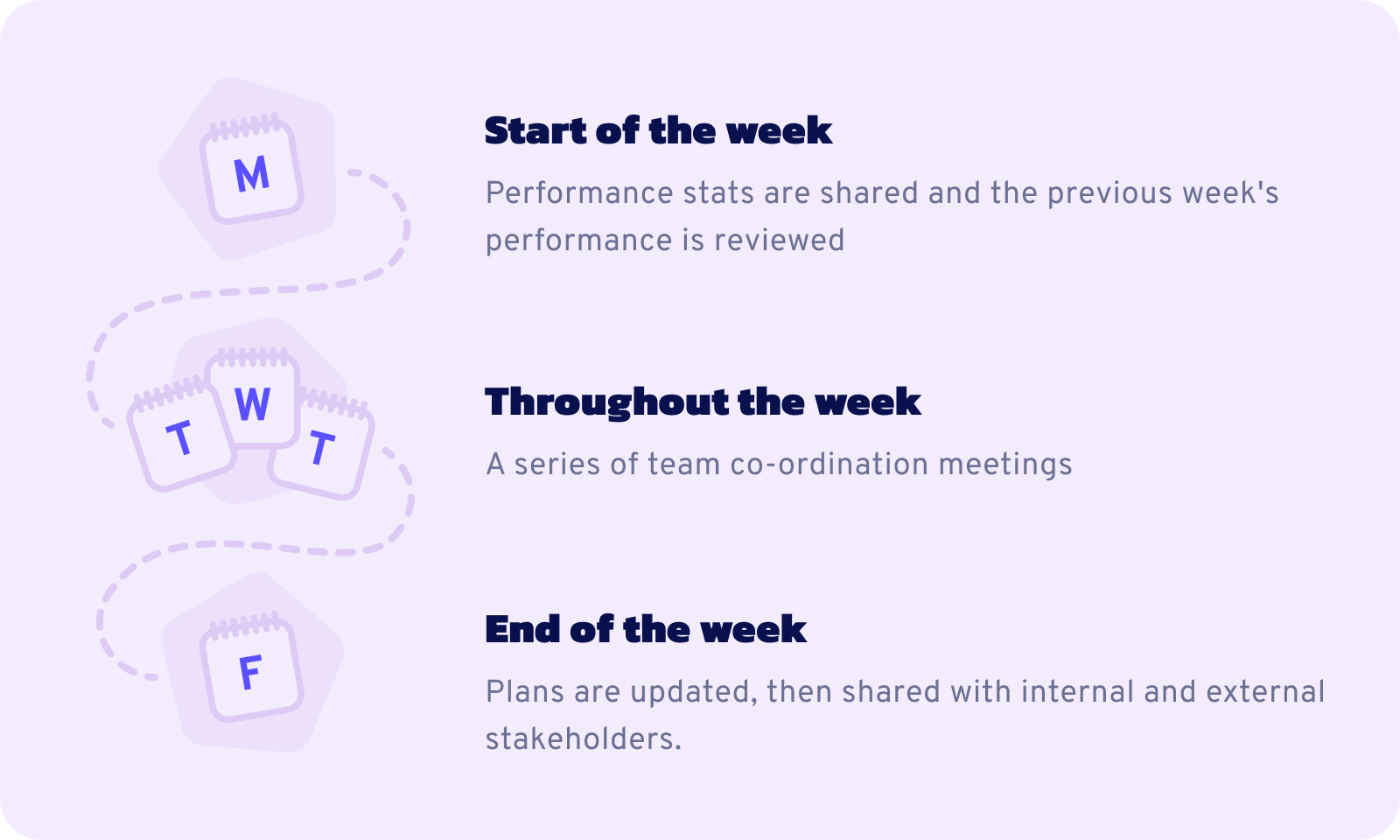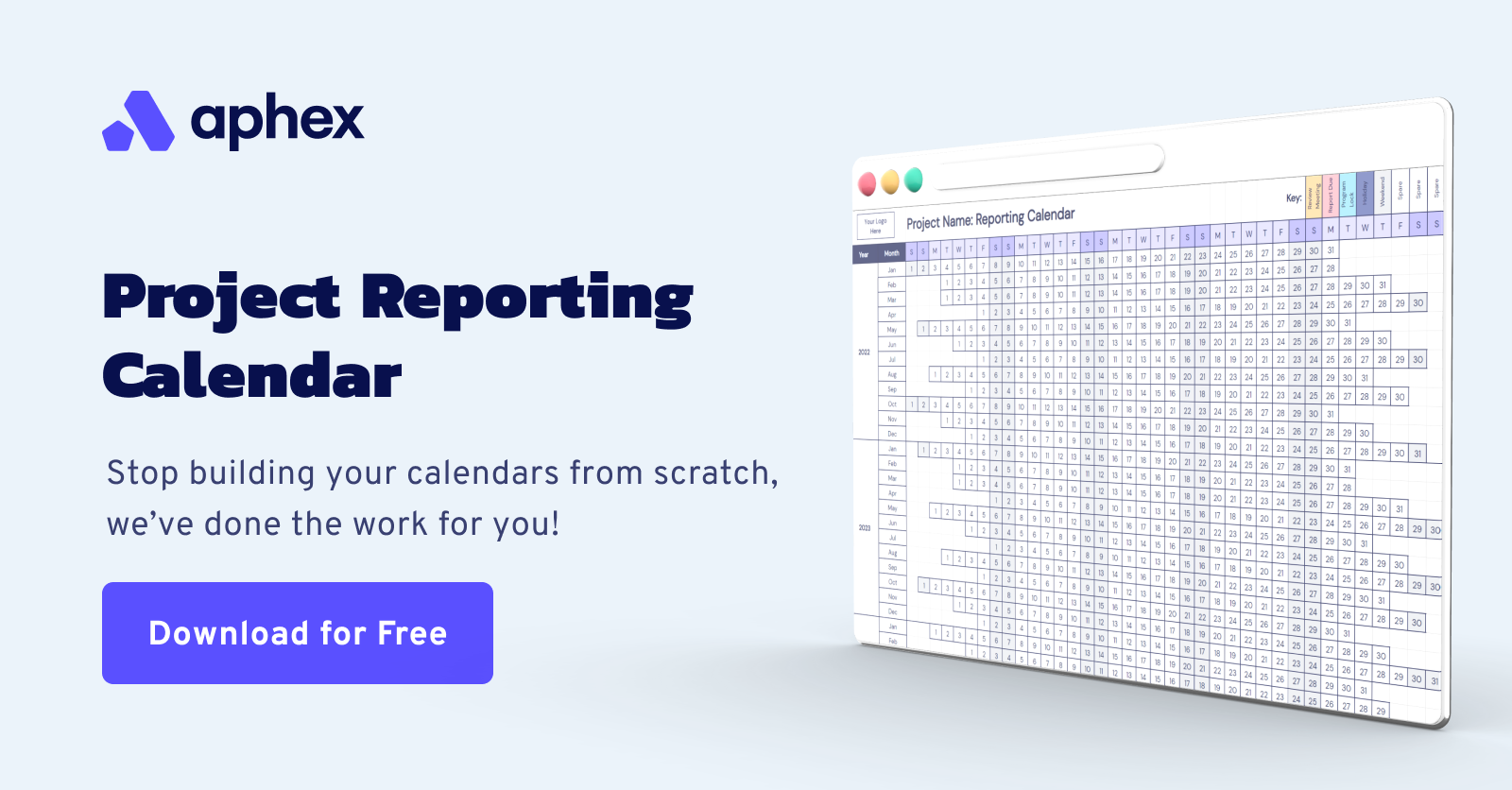Without structure and routine, construction projects can quickly become a nightmare to manage. Sporadic and unplanned meetings lead to a breakdown in communication; site teams end up working in silos and the project quickly becomes a headache for engineers and project managers to keep track of.
By implementing short term planning and a weekly reporting routine you’ll be able to monitor the day-to-day activities of project, improve productivity, and drive site performance.
Weekly reporting routines for construction
A strong weekly reporting routine consists of a structured series of meetings and activities which religiously take place every week. This ensures that there is a standardised process across the entirety of the project and that reporting is consistent from start to finish.
These meetings ensure a greater level of collaboration between teams, helping to identify potential issues and improve the performance of the overall project. The weekly routine also enables the production of strong, well informed, short term plans.
Why short term plans are beneficial to your project
By creating more granular, short term (weekly) plans, engineers and project managers are able to review the performance of a project on a more frequent basis. This helps identify issues sooner than would otherwise be possible with a more traditional approach.
Ultimately, short term planning provides a greater understanding of the project, reduces delays, and prevents you from overspending on projects.
Enjoying this article? You'll love The Ultimate Guide To Construction Reporting.
What does a weekly reporting routine look like?
Discussions normally take place across a series of performance review, and team co-ordination meetings, which are usually held in a War Room. The process includes the participation of Construction Managers, Superintendents, Foreman, Planners, and Engineers at all levels. Although this is not an extensive list and it may often require the input of various other team members.
Whilst it might look slightly different from one construction project to the next, the processes and timeframes normally look something like this:

An example of how this looks in action:
Monday
Project Engineers, Site Engineers, and Foreman will discuss the previous week's work. This is an ideal time to discuss any issues or concerns for the week ahead.
Tuesday
A Weekly interface meeting is held for separate structures and teams to come together, collaborate, arrange handover dates, and mitigate potential clashes.
Wednesday
Senior Project Engineers host co-ordination meetings. Whilst topics may change from week to week, the agenda will normally include:
- Last week’s activities
- The success rate of those activities
- Delays and issues
- An up-to-date view of the programme
- A review of target dates for the coming weeks
- Issues and concerns for the week ahead
- Duration and requirements for the planned work
- Future works and considerations for upcoming work (typically around 12 weeks)
Thursday
A performance review meeting is held by the Construction Manager and attended by the Superintendent, Senior Project Engineers, and the Area Planner. Again, the specifics might vary from one project to another but the activities usually look something like this:
- The Area Planner produces a Target Programme that highlights the remaining activities for the upcoming 12 weeks.
- Each activity due to take place over the next 12 weeks is to be reviewed line by line and the relevant SPE should advise on any required amendments.
- Critical and subcritical paths from the target programme are then reviewed separately so that senior team members can focus on critical activities.
- Key Milestone Dates are reviewed.
- The Production Control Dashboard is reviewed.
- Root causes for failed tasks are investigated.
Friday
Project Engineers produce an updated weekly programme which should be based on the team discussions and interface meetings held during the week. This includes actual data from the week prior and the next 3 weeks of the look ahead plan.

Thanks for reading! If you enjoyed this article and would like to learn more driving short term performance in construction, check out The Ultimate Guide To Construction Reporting.
